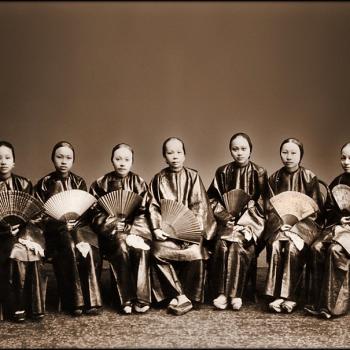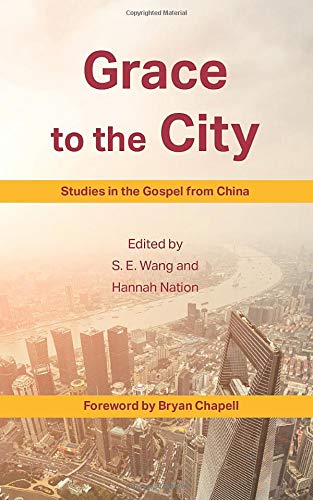
Last year, I suggested that China’s 5-year plan to Sinicize Christianity is political, not biblical. It is syncretism, not contextualization. A year later, we can speak with even more clarity: “Sinicized Christianity” is not Christianity.
Why would I say this?
Christianity Does Not Reject God
As is obvious from my previous post (and for anyone who keeps up with China), the “Sinicization of Christianity” campaign is nothing more than a ploy to cajole Christians to embrace the Chinese Communist Party’s political agenda. The plan regularly uses benign language that seemingly anyone can agree with.
For example, the goals of the Sinicization of Christianity include “social harmony, advancement, and healthy civilization.” Christians are urged to “serve society and perform other solid work by engaging in justice and charitable activities to steadily make progress in stages.” Who could argue with that?
Such goals must be understood in the context. For instance, the 5-year plan states, “The promotion of Sinicization of Christianity must be guided by the core values of socialism.” Consider also comments made this past week by Xu Xiaohong, chairman of the National Committee of the Three-Self Patriotic Movement (TSPM), the government-run body who oversees officially sanctioned churches in China. He said,
“only by continuously promoting and implementing the core values of socialism can our Christianity truly adapt to the socialist society.”[1]
At the core of socialism is an affirmation of atheism. According to socialism, society will only realize its utopian ideal when people have cast aside their beliefs of God.
By contrast, from a Christian perspective, enduring “social harmony” and “justice” are impossible where God is rejected.
So, sure, Christians also want a flourishing society. But Christians understand social well-being in a quite different way than does the Communist Party, who rejects God.
Christianity Does Not Reject “Foreigners”
There are other ways that Xu Xiaohong’s recent statements contradict anything that resembles biblical or historical Christianity. He seeks to severe all influence on the Chinese church from outsiders. He even revitalized an old saying oft heard during the cultural revolution, “One more Christian, one less Chinese.” Xu adds, “It must be recognized that the surname of the Chinese church is ‘Chinese,’ not ‘Western’.”[2]

Such xenophobia seems to stem from a misunderstanding of Christian history. Xu errs when he equates Christianity with the West. Christianity is not a “Western” religion. Historically, it is deeply rooted in the ancient near east, whose cultural perspective is far more like traditional Chinese culture than the modern West. Furthermore, there is nothing essential to Christianity that comes from the West. One can live a Christian life in India, Africa, or Korea yet not adopt any characteristic rooted in Western culture.
Biblical Christianity is global in nature. Not only do we find Christianity across the world; theologically, the Abrahamic covenant frames the entire biblical narrative. In it, God promises to bless all the nations and so ultimately fulfill his plan for humanity to be fruitful and multiply. Any insistence that the church in Chinese only have Chinese characteristics, free from outside influence, is unbiblical. This could be said of the church at any time and place.
The Church is local, global, and historical. It does not belong to the West or China; it belongs to Christ.
The plan for the Sinicization of Christianity in China is just another aspect of the Party’s attempt to foster nationalist fervor. This plan is not unlike the approach taken by the Germans in the 1930s. The Nazis incrementally absorbed the church into its political machine, all in the name of patriotism. In that context, the “Germanization” of Christianity produces an “Aryan Jesus” that eventually turned against outsiders.
This brand of Christianity is akin to the kind opposed by Paul in Acts, Galatians, and Romans. Judaizers excluded Gentiles unless they became ethnic/national insiders via adherence to the Mosaic Law. In some respect, Chinese leaders who push for a Sinicization of Christianity use similar logic as those early Jews.
Ironically, the official rejects the notion that foreigners should influence the church in China while at the same time an atheist government tries the Sinicize Christianity.
Who is more a foreigner to Christianity than an atheist?
Christianity Does Not Reject the Bible
The Sinicization of Christianity actively seeks to undermine the influence of the Bible on Christians. This agenda is apparent from reading the government’s own words and observing recent developments in China. For example,
The official 5-year plan states,
“Contents of the Bible that are compatible with the core values of socialism should be deeply researched in order to write books that are popular and easy-to-understand.”
The government recognizes inherent incompatibilities between the Bible and socialism. Officials make clear that they wish to use the Bible as a tool to propagate socialism; it is Christian theology that must change, not socialism.

What is more alarming are the tactics used by police and government officials over the past year. Apparently, Sinicizing Christianity means removing Bibles and limiting access to the Bible. Last Spring, the government banned the selling of Bibles through major retailers such as Taobao, Amazon, JD.com, and elsewhere. The decree came just days after China announced the full plan for the Sinicization of Christianity. Inexplicably, Chinese officials think the Sinicization of Christianity involves having less access to the Bible.
In some sanctioned TSPM (“Three-Self”) churches, the government has removed Bibles from the premises such that parishioners have limited access to the Bible even while at worship services. As a result, local Christians in TSPM churches must adopt “orality” strategies typically used among minority groups and less literate peoples.
Christianity Does Not Reject Children
Last year, officials made clear that Sinicized Christianity does not accept children. China enforced the rule that children are banned from religious meetings. In effect, when it comes to Christianity, the government enforces an “Every Child Left Outside” policy.
In this way, Chinese leaders follow the example of Christ’s disciples. In Mark 10, we read,
10:13 And they were bringing children to him that he might touch them, and the disciples rebuked them. 14 But when Jesus saw it, he was indignant and said to them, “Let the children come to me; do not hinder them, for to such belongs the kingdom of God. 15 Truly, I say to you, whoever does not receive the kingdom of God like a child shall not enter it.” 16 And he took them in his arms and blessed them, laying his hands on them.
Not only is the policy against children antithetical to the Bible; it raises a question. How can Christianity become “Sinicized” when people are limited from learning about Christianity? In reality, the Sinicization of Christianity is a cunning long-term strategy that could just as well be called the “Eradication of Christianity.”
Christianity Does Seek to Subvert Governments
Xu’s alarmist comments reflect his political paranoia. He says,
“The actions by Western anti-China forces that attempt to influence social stability or even subvert the regime of our country are destined to fail.”[3]
Xu seems completely unaware of how apolitical the average Chinese Christian is. Most conflicts between the state and house churches are the sort that could have manifested in non-religious communities. People complain about actions by the government that seem arbitrary or unconstitutional. There is nothing uniquely “Western” about such criticisms.
What is also peculiar is the fact that Chinese officials appear oblivious to passages like Romans 13:1-8, which exhort the church to honor political authorities. In other words, those who subscribe to biblical Christianity do not seek to subvert the government. But, if we are honest, Party leaders, unfortunately, equate any criticism against them with subversion.
What can we learn?
In summary, “Sinicized Christianity” is not Christianity.
The entire plan reminds us of the power of words. The government uses the sort of rhetoric that has become increasingly popular in the West. That is, it has become vogue to use the word “Western” almost like it were a cuss word, as though anything associated with “the West” was bad and oppressive. The government has seized on such sentiments to advocate for a Christianity that is not only independent of Western political influence but free from any outside influence, whether historical or cultural.
Most of “Sinicized Christianity” (as proposed by government officials) stands in contrast to biblical Christianity; yet, we can learn from certain criticisms they press against the church. For sure, Chinese Christians have not contextualized biblical sound theologies to the extent that is possible. Most believers simply accept teachings inherited from Western scholars and missionaries without thinking about what else they themselves could contribute to the global church.
Western missionaries certainly share in the blame. They have not always reflected critically on the influence of the West on their own theology and methods. Missionaries have not always made a concerted effort to contextualize the gospel and train Chinese believers to develop their own contextualized theologies and expressions of Christianity.
Also, much theological training focuses on passing along the right doctrine. However, less attention and labor are dedicated to fostering people’s ability to think critically. Such a task is far more painful for both students and teachers. It is time intensive. It requires more homework and credentialed teachers. However, such growth is necessary for the church in China to reach its full potential.
Perhaps, if we learn these lessons, we will see a “Sinicized Christianity” that is actually Christian.
[1] 只有不断弘扬和践行社会主义核心价值观,我国基督教才能真正与社会主义社会相适应.
[2] 必须认识到,我国教会姓 “中”,不姓 “西”.
[3] 西方反华势力妄图继续通过基督教影响我国社会稳定、甚至颠覆我国政权的行为,注定不会得逞













